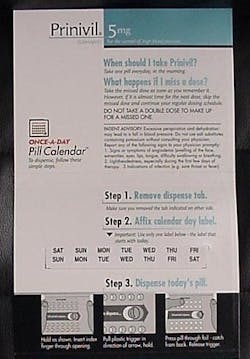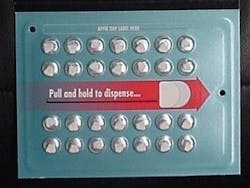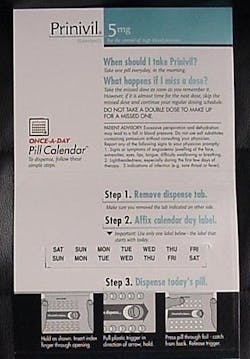If you make drug packaging easier to read and understand, you get better patient compliance and improved patient health. It sounds simple enough, but until recently there has been no solid research to support the assumption.
- A 28-day regimen (pill calendar), so that patients begin each new regimen on the same day of the week, making the start date easier to remember (see photo above);
- A notation next to each pill specifying the day (e.g., Tuesday) on which it is to be taken, thus eliminating confusion over whether that days dosage has been taken;
- Specific, clearly printed instructions on a fold-over blister card (see photo below) telling patients exactly what to do should they, for example, miss a dosage or fail to comply in some other way.
- The Medication Possession Ratio (MPR), a measure of the proportion of days a patient has medication available to be taken, was 6.2% higher for the study group than the control group.
- The percent of on-time refills was 13.7% higher for the study group.
- At 12 months, a significantly greater proportion of patients in the study group had lower diastolic blood pressure than those in the control group.
About the Author
Paul Thomas
Managing Editor
Sign up for our eNewsletters
Get the latest news and updates


